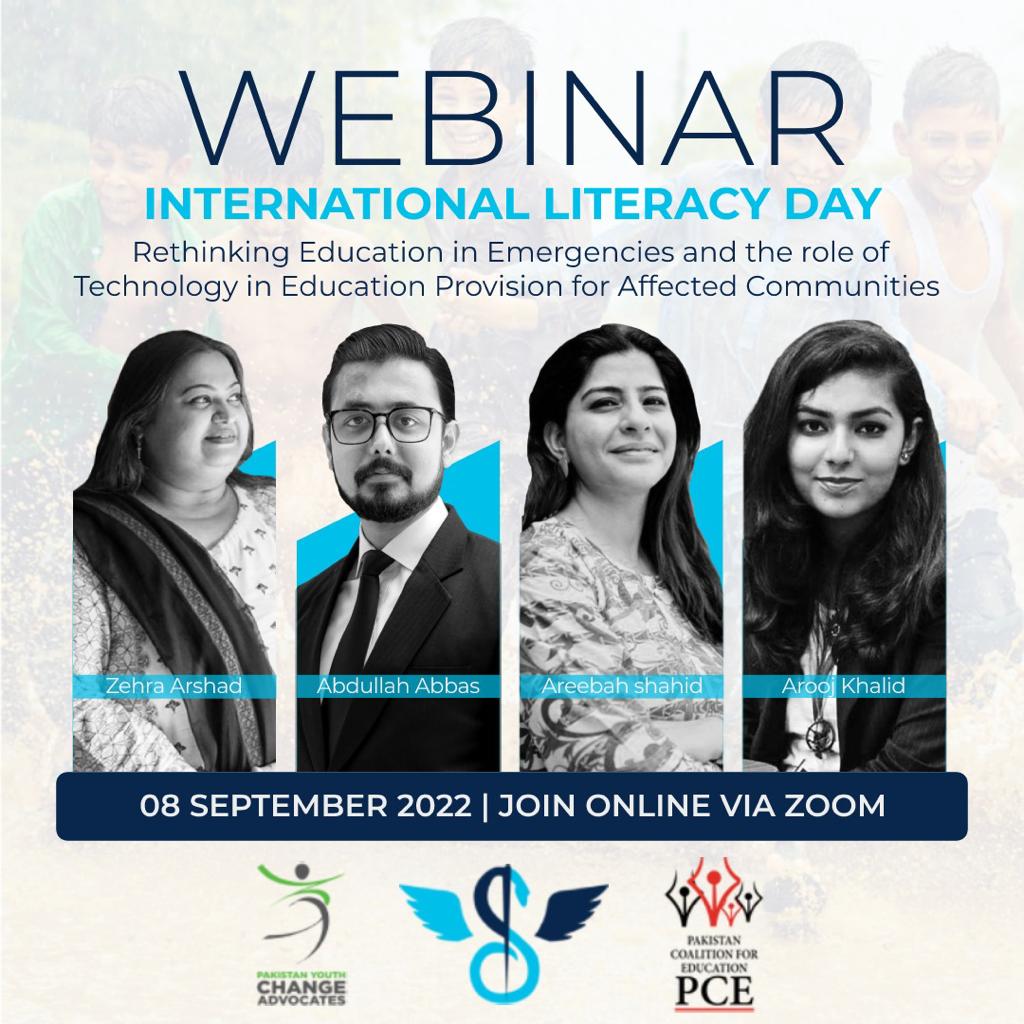Disclaimer: Website Under Maintenance: Our website is currently under maintenance. We apologize for any inconveniences.

Speakers: Areebah Shahid, Arooj Khalid and Zehra Arshad, Moderator: Abdullah bin Abbas
To commemorate International Literacy Day on September 8, 2022, Pakistan Coalition for Education (PCE), with the support of Saving 9, Pakistan Youth Change Advocates (PYCA), and Science Fuse held a webinar titled 'Rethinking Education in Emergencies and the Role of Technology in Education Provision for Affected Communities'. The discussion was centered on the climate-related post-monsoon flooding that has wreaked havoc in 80 districts in 5 provinces of Pakistan, impacted 33+ million people and caused 1200+ deaths. Once again, marginalized communities have been disproportionately impacted. Along with damage to their crops and infrastructure and a surge in health issues (water-borne illnesses, skin diseases, respiratory illnesses etc.), the destruction of 18,000+ schools and the consequent discontinuation of education has drastically increased the number of out of school children.
Abdullah bin Abbas, CEO of Saving 9 spoke about climate change, the need for climate education in a disaster-prone country like Pakistan as well as on challenges in ensuring continuity of learning and inclusive, equitable and quality education for all amidst climate disasters, particularly as a tool to uplift and ground children undergoing psychosocial trauma in the aftermath of disaster situations. Arooj Khalid, science communicator at Science Fuse and Malala Fund fellow, emphasized the need to hold the global north accountable for their actions causing climate change, the consequences of which are being faced by countries in the global south whose greenhouse gas emissions have been negligible. Arooj also stressed on the need for spreading climate awareness to all segments of the population along with pointing out how our current science curriculum loses out on the opportunity to equip students with a scientific understanding of climate change.
Areebah Shahid, Executive Director PYCA, said that since 2005, this is the third major climate-related disaster that Pakistan is facing. Post the 2005 earthquake and the 2010 floods, top-notch consultants were tasked with producing research on effective education provision in emergency situations. However, while learnings on best practices to ensure continuity of education amidst disasters are well-documented, systems in place are not ready to implement them.
Zehra Arshad, National Coordinator PCE, further added that for many years, policymakers and educators have merely remarked on the need to make climate education a part of the curriculum but at a practical level, no steps are being taken to ensure the delivery of life-saving climate education for increasing our citizens' capacities to understand and tackle the issue.
All speakers reflected on the importance of developing a gendered response to the ongoing relief and rehabilitation work. Since women and children were already more vulnerable prior to the disaster, they have been disproportionately impacted by the floods and are likely to face barriers and discrimination in accessing relief and rehabilitation. It is crucial to work for the prevention of their violence and harassment in this time of immense vulnerability as well as to address their health and nutrition needs, including women's reproductive needs.
On the way forward, speakers detailed actions to be taken in the short and long term with some of the recommendations listed below: